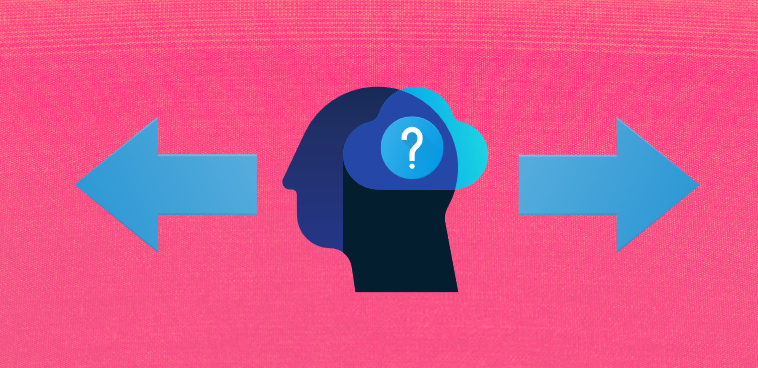Executive dysfunction is usually associated with attention disorders, but we all know what it’s like. No matter how much we need to make a decision, we simply can’t. We organize, we plan, we stress, and then we plan some more — and yet we still can’t choose.
Although executive-function coaches are often enlisted for ADHD treatment, most of us can play the position ourselves. After all, we have to fly solo sooner or later: Isn’t it better to develop our own decision-making wings than to depend on someone else’s?
Before you say, “If I could do it myself, I already would have,” ask yourself the following questions:
1. “Why am I putting off this decision?”
When we put off decisions, it’s typically out of fear. Understanding which fear is driving our delay is the first step in overcoming it. We might be avoiding the decision to start a business if, despite having all the resources and expertise we need, we’re afraid we’ll fail. If we’re stuck between the prestigious job and the one we actually want, the root issue might be fear of criticism.
To overcome that fear, imagine your worst “what if.” What if your startup actually does crash and burn? Well, you’ll go get another job — probably in record time, given that employers welcome entrepreneurial experiences. What if your parents are disappointed in you for taking that grocery-store gig? They’ll get over it, especially when they see that you’re happier because of it.
2. “What opportunities might I unlock by making this decision?”
The flipside of fear — hope — is perhaps your most powerful decision-making tool. Especially if you’re struggling with fear, think about all the good that might come from your choice. Investing in a new startup might be risky, but it also might make you a ground-floor investor in a growing company. Taking on a new project at work may mean more work, but it may also net you a raise.
Isn’t optimism tough to muster when you’re worried about a decision? Perhaps, but it also makes a positive outcome more likely. A study by insurance and financial giant Metropolitan Life found that optimistic salespeople outsold their pessimistic peers by 20% the first year and 50% the second. By focusing on the opportunities your choice might open up, you improve the chances that it actually will.
3. “Who will this decision affect?”
Typically, it’s an internal struggle that stops us from settling on something. Thinking about who else the choice affects creates an external source of motivation. If you’re someone who worries about letting others down, that might be reason enough to make a decision.
Professional artist Jolie Guillebeau takes this approach when she’s struggling with whether she should paint that day. Guillebeau, who committed herself to creating 100 paintings in 100 days, emails a snapshot of her work each afternoon to her clients. When she doesn’t feel like painting, she reminds herself that other people are expecting her to deliver something that day,
4. “What are the consequences if I don’t make a decision?”
The beauty of this final question is that it subtly shifts your understanding of the decision-making process. Instead of treating procrastination as a way to delay a choice’s outcome, this question forces you to consider what consequences you’ll incur by putting it off. It leverages fear, but in a way that pushes you toward the decision rather than away from it.
Although some of the consequences of putting the choice off might harm others, take a moment to think selfishly: What do you, personally, stand to lose if you keep procrastinating? A job opportunity? A new relationship? A stress-free afternoon?
Like it or not, life requires you to be decisive. When you struggle with that, be your own coach: Be inquisitive, be helpful, but most of all, be honest with yourself. Look squarely at the fears and opportunities associated with your choice, and you’ll find the motivation you need to move forward.
Rashan Dixon is a senior business systems analyst at Microsoft, entrepreneur and a writer for various business publications.
If you enjoyed this article, sign up for SmartBrief’s free e-mails on leadership and management, among SmartBrief’s more than 200 industry-focused newsletters.
